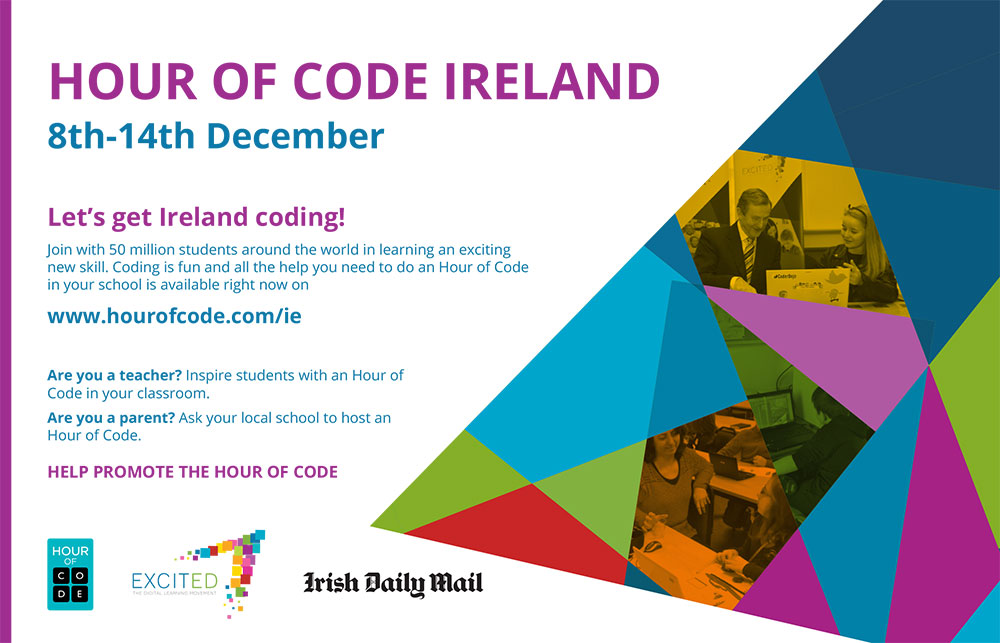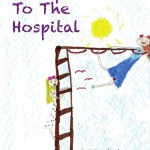Earlier this year I was asked to write a foreword for an anthology of poems and short stories written by primary school children and published by the Galway Education Centre. Within that foreword are the words Is é sin an draíocht atá laistigh ionann go léir. That is the magic within all of us. I was referring to the magic of creativity and in particular the talent we all possess to stare at a blank page or screen and slowly fill it with our thoughts and dreams.
When Michelangelo was asked about the creative process, how he first imagined something as timelessly beautiful as his David he responded by saying “In every block of marble I see a statue as plain as though it stood before me, shaped and perfect in attitude and action. I have only to hew away the rough walls that imprison the lovely apparition to reveal it to other eyes as mine see it.”
The young people who contributed to that superb anthology had the courage to believe that their story was worth telling and for me it was a joy to witness them expressing themselves so eloquently. They succeeded in freeing their minds from the rough walls that imprison all of us from time to time and the results were simply beautiful to behold.
Those young Irish authors drew from the wellspring of a centuries old Irish literary tradition, a tradition that has produced four Nobel prize winners in literature. One of those winners, Seamus Heaney, whom we lost recently, once wrote that “the main thing is to write for the joy of it”. The work of those children was inspirational and quite moving at times because in every contribution I sensed complete creative freedom.
And I wondered how we as policy makers, teachers and parents could protect and nurture that creative freedom, that courage, that self-belief.
A pretty momentous event occurred this year in the history of education in England; an event that went largely unnoticed internationally and one that will in time prove to be an inspired decision on the part of the British government. It was a courageous step on the part of policy makers to tear down the walls of traditionalism and unleash a new and immensely empowering creativity.
As schools across England threw open their doors in September to millions of students, they did so with a new subject on their curriculum—computer science. Children from as young as five will for the first time learn about a science and a language that is reshaping the world around them on a daily basis. In the words of the new computer science curriculum document published by the UK Department for Education, their aim is quite simply to equip children with “computational thinking and creativity to understand and change the world”. This is a very powerful and visionary statement of intent on the part of any country.
This major innovation in education results from a campaign by teachers, parents and ICT professionals. It has been a passionate and concerted one that perhaps found its touchstone in the words of Google chairman Eric Schmidt, when in 2011 he accused education leaders in the UK of failing to sustain a centuries-long tradition of British innovation. In particular, he was scathing in his criticism of an IT curriculum that focused on teaching children how to use software, but gave no insight whatsoever into how it’s made.
However, just three years later, an education system serving a population of 57m people has managed to respond to the challenge thrown down by Schmidt and began gifting its children with a critical future skill. Schmidt delivered his powerful critique in Edinburgh and it ultimately had an impact in Whitehall.
Much closer by, in Dublin, a small country of just 4.5m people has yet to take such a courageous but necessary step.
All around us every aspect of our lives is quickly evolving through technology. Ten years ago, Facebook didn’t exist, now it has more than 2m users in Ireland with Twitter coming close to 1m. A recent survey of Irish young people aged 15–35 found that for 90% of them, the very first thing they do upon waking in the morning is to check their smartphone for updates. The rapid development of the Internet of Things will lead to 25 billion devices being connected to the Internet by 2020, three devices for every single human on earth.
With the use of ICT becoming ubiquitous across all sectors from farming to healthcare, those who have a deep understanding of computer science and its emerging languages will have a major competitive advantage in the workplace of the future. Across the EU demand for employees with ICT skills is growing by around 3% a year while the number of graduates from computing sciences is at best remaining static. If this trend continues, there could be up to 900,000 unfilled ICT vacancies in the EU by the end of next year. Here in Ireland Forfás predicts that by 2018 there will be an additional 44,000 vacancies in a sector that already employs 105,000 people. Putting it simply, technology will drive massive economic growth locally and globally.
Is it acceptable that our children end up being passive uninformed users of that technology without having a deeper understanding of how it works? The millions of lines of code that shape the world of information technology are no different to the DNA or the laws of physics that form the building blocks of our physical world. Every day new empires rise up using technology yet, up to now, we in Ireland have considered it acceptable not to teach our children about this powerful new force for change, this powerful new opportunity to bring their ideas to life.
I’m not for a moment suggesting we need to churn out a nation of programmers, so that every Irish child will become the next Mark Zuckerberg (although there are very encouraging signs that some will). We teach our children other subjects, such as maths, science, geography, history and music, so that they understand every facet of the world we live in and mankind’s incredible discoveries. We do so to maximise each child’s potential to make their own mark on humanity’s history.
Leaving computer science out of that list of subjects is no longer acceptable, in fact it wasn’t even acceptable ten years ago. It is a subject that can empower our children to gain an even deeper understanding of our modern world and in that process acquire many other complementary skills that will serve them well through life.
Woven into computer science we also find literacy, numeracy, logic, analytical thinking and deep creative expression. Our understanding of the teaching of computer science has evolved considerably over the last number of years. It is not about learning how to use other people’s shrink wrapped software. If that is the pinnacle of our ambition then we are selling our children very short.
In just a few weeks, our Department of Education will publish Ireland’s first ever Digital Strategy for Schools. In essence, that strategy can be one of two things, a conservative and unambitious tinkering around the edges of Irish education or a truly groundbreaking and courageous call to action.
Last May at Excited, Ireland’s first digital learning festival, our Digital Champion Lord David Puttnam set the clock ticking when he said we have at most four years to effect the necessary change before Ireland’s children get left behind… for good.
I’m confident that Minister Jan O’Sullivan and her officials in the Department of Education know exactly what’s needed and they are deserving of our support. They should have the courage to produce a digital learning strategy that challenges our Government to support education with renewed investment and our Government should respond accordingly. Specifically, our Digital Strategy for Schools should contain a commitment to begin teaching computer science to all of our students in September 2016.
In achieving this commitment, our Department of Education would not be working alone. We now have Excited, a new Irish digital learning movement uniting a large cohort of trailblazing teachers, students, academics and industry leaders who have the knowledge and passion to stage a learning revolution. We have the founders of CoderDojo, our powerful community-based digital education movement, also willing to lend their expertise.
Most of all we have our children who are already demonstrating that they have the capacity to master “computational thinking and creativity to understand and change the world” if we just give them a chance.
If anyone doubts for a moment whether our children are ready for this evolutionary shift in education I would advise them to sit in on one of the 140 CoderDojo sessions taking place around Ireland on a regular basis.
On a child’s face they will see that joy described by Heaney when they write their first computer program, hit that little green flag, and suddenly realise that they are in control of the machine. You can witness their excitement when they write a few lines of html and create, for the first time, their very own space on the World Wide Web.
Rather than seeing children playing someone else’s games, you will see them creating their own in a new digital landscape that they have designed. You will be amazed to hear nine-year-olds describe lines of complicated code as something they threw together before they went to bed the night before, just for fun. If coding is the new 21st century literacy, then we have modern day poets emerging in every corner of our country on a weekly basis.
What has happened here in Ireland is that our formal education system has been temporarily left behind and our young people, with the help of volunteer mentors, have simply begun teaching one another the skills that excite and inspire them.
We cannot let our children down by allowing our formal education system to lag behind. At the very least we need to allow as many children as possible to try coding for the first time and see what a powerful creative tool awaits them under the cover of their smartphone, tablet or laptop.

That is why when you finish reading these words I would be very grateful if you would take five minutes to encourage your local school to take part in the Hour of Code next week. This is a wonderful initiative happening all over the world from the 8th to the 14th of December. Over fifty million students will learn how to take those first steps in coding, in bringing their ideas to life using a computer and to finally realise that their phone, tablet or laptop can be a powerful tool of expression. Anyone can teach that first Hour of Code using the easy step by step online resources developed by Code.org.
Ciaran Cannon
Ciaran Cannon is a TD for Galway East, a former Minister of State in Education, and a founder of Excited—The Digital Learning Movement.



